
views
Here are 10 effective tips to help stop your late night trips to the bathroom.
Stop drinking before bed.
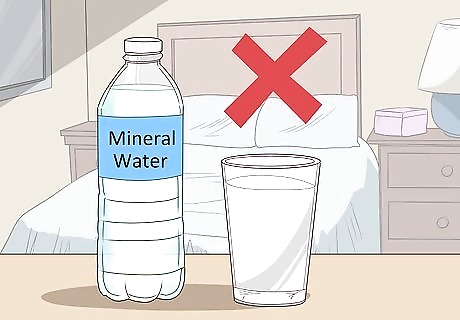
Yes, it’s obvious, but if you haven’t tried it yet, stop drinking before bed. Don’t drink anything in the 2 hours leading up to bed, and use the bathroom right before you go to sleep. You may have tried this already, but a lot of people naturally grab something to drink in the hours leading up to bed without even really thinking about it. Try to be more conscious about how much you’re drinking before you call it a night. You still want to stay hydrated. If you get exceptionally thirsty and you’ve still got a few hours before bed, don’t just “fight through it.” Grab a cup of water. It’s much better to get up in the middle of the night to use the bathroom than it is to be dehydrated.
Cut out caffeine after noon.

Caffeine makes you urinate more often, so don’t drink any after noon. Caffeine is a diuretic. Long story short, diuretics make you pee more frequently. Since caffeine can stay in your system for a long time—coffee is in your system for up to 5 hours—stop drinking anything caffeinated well before you need to go to bed. If you’ve been enjoying an afternoon cup of tea after you get home from work, try skipping it to see if your problem goes away.
Avoid drinking alcohol before bed.
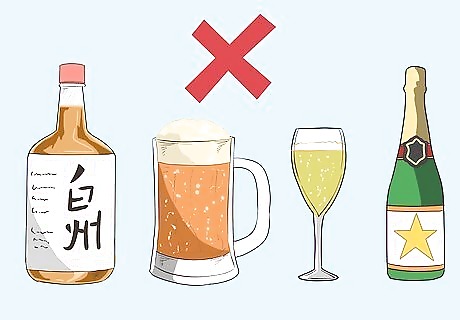
Alcohol also triggers the frequent need to pee, so cut back before bed. Like caffeine, alcohol is also a diuretic. If you tend to have a few glasses of wine to unwind at the end of the day, or you enjoy a late-night IPA or two while you’re reading in bed, you may need to stop if you want to sleep through the night. If you find that alcohol help you fall asleep, it’s important to recognize that the quality of that sleep isn’t going to be particularly good—even if it does help you fall asleep faster. Long-term late-night alcohol use is also commonly associated with insomnia. You may find your sleep hygiene dramatically improve if you put the alcohol down!
Check the side effects of your medications.
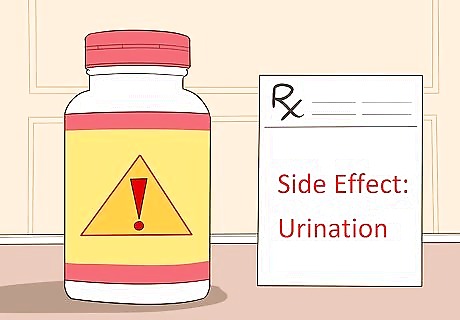
There are a lot of medications that can trigger frequent urination. If you’re taking any prescription medications, look at the list of common side effects to see if frequent urination or nocturia is listed. If it is, talk to your doctor about switching medications. If you’re taking any OTC medications, look online to see if anyone else has experienced late-night urination with it. If they have, seek out other alternatives. Calcium channel blockers, sedatives, sleeping pills, anti-Parkinson medications, and alpha-blockers are all associated with an increased urge to urinate.
Try double voiding before you sleep.
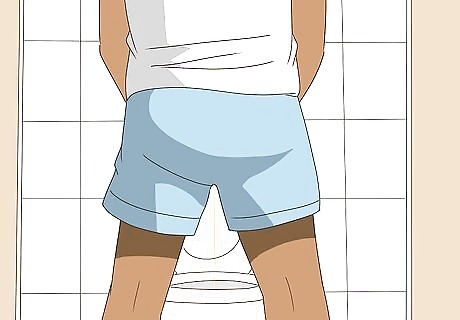
Once you urinate before bed, stay at the toilet and try urinating again. This is known as double voiding, and it’s a good way to ensure your bladder is totally empty. When you finish peeing normally, it’s possible that your brain thinks your bladder is empty while there’s still some liquid left in there. This gets rid of it! Even if you don’t feel like you need to go again, just give it 30 seconds or so and try to urinate again. Don’t strain yourself or anything, but if it happens, great! Double voiding is just a generally good strategy if you find yourself urinating frequently during the day as well.
Elevate your legs in the evening to drain fluids.
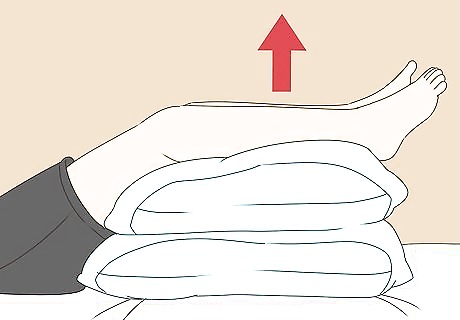
This sounds odd, but kick your feet up late at night! Over the course of the day, fluid naturally accumulates in your legs and feet. By elevating your legs for an hour or so before bed, all of that fluid will have time to redistribute itself. This way, when you use the bathroom before bed, you’ll be removing a lot more fluid from your bladder. If you don’t (or can’t) elevate your legs in the evening, you can always wear support hose or compression socks.
Get better sleep.
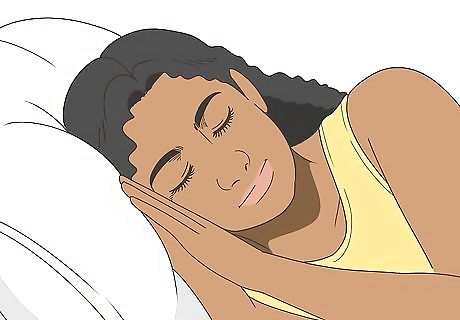
You may be waking up to pee just because you’re waking up. If you’re getting up in the middle of the night all the time, try improving the quality of your sleep. Go to bed and wake up at the same time every day, even when you feel like sleeping in on the weekend. Put your phone on airplane mode before bed so that random notifications don’t wake you up. Block your windows entirely so that light can’t come through, and set the thermostat to a comfortable temperature. Some people mix up the relationship between sleep and late night trips to the bathroom. It could just be that you’re waking up in the middle of the night and you realize your bladder is partially full, but that it isn’t your bladder waking you up!
Identify and eliminate your triggers.
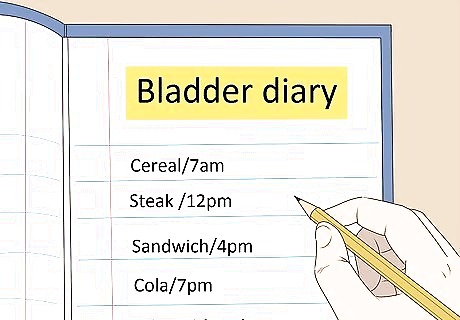
If you can’t seem to solve the problem, start a bladder diary. Throughout the day, jot down when you drink and eat, as well as what you’re consuming. On nights where you wake up in the middle of the night to urinate, make a note in your journal to review the previous day before going back to sleep. You may notice some kind of pattern in your behavior that’s exacerbating the problem, and you can start taking steps to modify your behavior to curb the bathroom trips.
Exercise regularly.
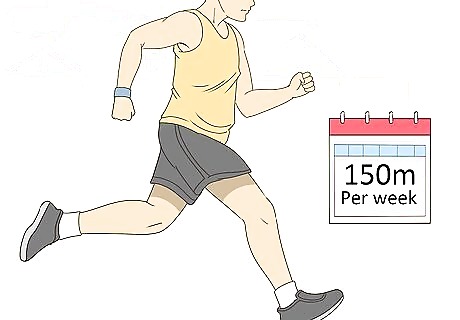
Getting more active will improve your body’s ability to void fluids. A healthy heart and kidneys will make it much easier for your body to regulate itself, and the more efficient your body is, the easier it will be to empty your bladder and stay asleep. Do your best to get at least 150 minutes of exercise over the course of every week. Even if it’s just a daily walk around your neighborhood, your body will thank you in the end!
See a doctor if you can’t solve this.
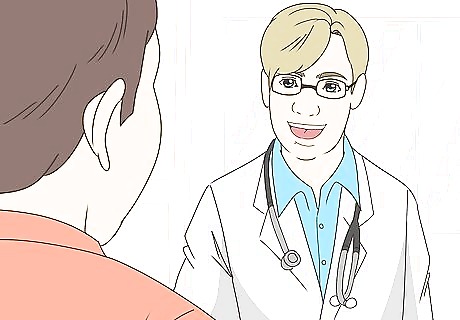
If nothing you do seems to help, see your primary care doctor. There are several prescription medications that may help with this. More importantly, there could be an underlying condition causing your late-night trips to the can. Diabetes, heart conditions, sleep apnea, and prostate issues can all trigger the frequent urge to pee at night, so this is something that you need to investigate with your doctor. The occasional late night trip to the bathroom may just be something you have to put up with from time to time. It’s just a natural part of aging, and up to 80% of elderly people experience the occasional late night need to urinate.














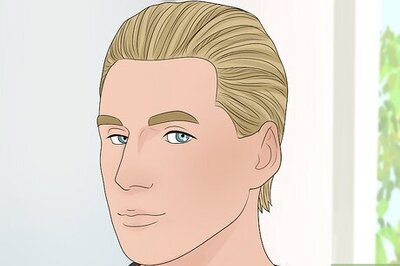
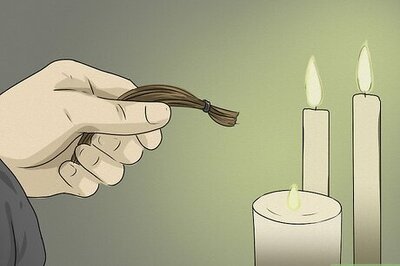
Comments
0 comment